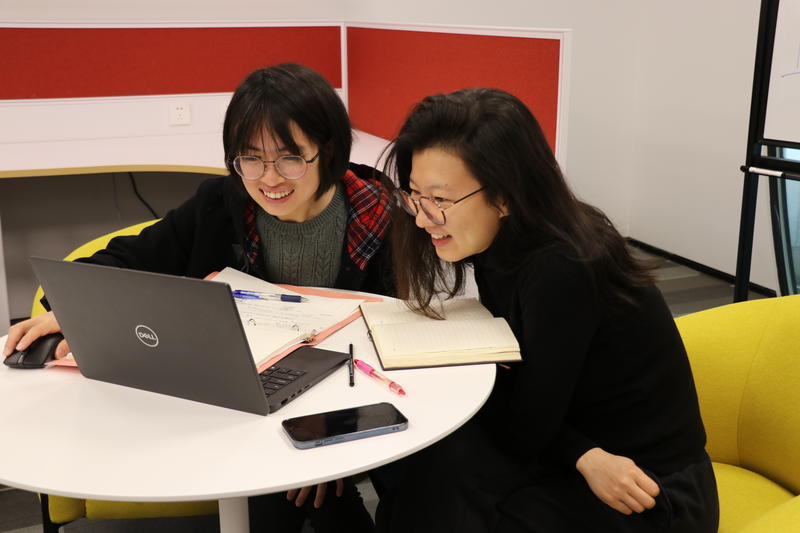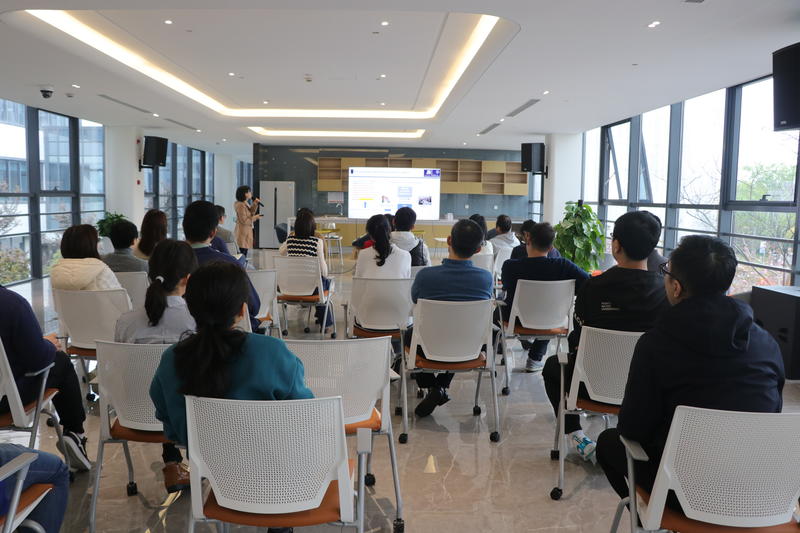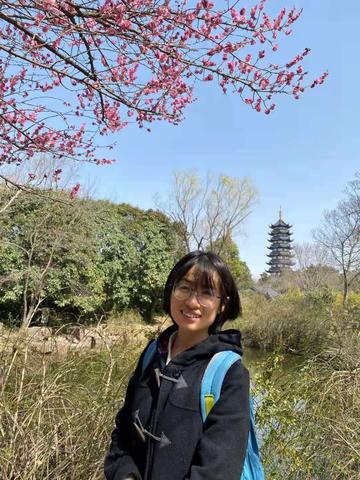Yechen: ‘I don't want to fall for the bias of ‘breaking the bias.’’
Yechen joined OSCAR at the beginning of December 2020. Before joining OSCAR, Yechen had 8 years’ experience in IP examination and management as a Patent Analyzer and a Senior Intellectual Property Officer at the China National Intellectual Property Administration (CNIPA).
Could you brief us your work relevant to intellectual property rights at OSCAR?
Sure. I am mainly responsible for creating, fostering and informing an IP aware research culture and managing the entire progress of IP evaluation and exploitation, drafting and refining IP regulations where it is needed.
When a research team achieves certain research results, or sometimes even a new idea arises and the researcher hopes to rapidly apply them in industry, then I need to discuss with researchers and decide with input from the academics, what is the appropriate exploitation route by resolving the following Qs : which part lies commercial possibility and where is the link , what stage of the research is, how advanced they are and any plan of future development exists how to protect the scientific results if they are applied in industry; what risks and problems related to intellectual property rights may exist and how to address problems and avoid risks; how about the benefits of the third party;
Then, I would make a pre-evaluation to decide whether they are strongly novel enough, what is the competing technologies, where poses industrial application, if conflicts of interest are involved, any third party shall lay claims in and any supplemental contracts shall be drafted, which could be called a Pre-IP due diligence check.

It is also one of my duties to carry out the value assessment of a patent. The assessment results will inform researchers on decisions such as what their next step is; which application direction they should focus on; how to apply for a patent; and what about the strategy of intellectual property rights.
I help researchers determine what real IP is. Certainly, they will not deviate from their established research directions. However, I can provide them with news idea for commercialisation which they did not think of before. This is conducive to the progress of this technology.
I am also responsible for the innovativeness assessment of a patent, which may affect the freedom to operate (FTO) (patent implementation risk). The purpose of this work is to reduce, to the maximum degree, legal risks that a patent may face in the future and ensure that pursuing the broadest patent claims will not infringe others’ rights and interests.
In the end, I am also responsible for the life cycle management of patents. A patent’s life cycle formally begins when its application is approved by China National Intellectual Property Administration with a patent number granted. During the life cycle, I need to respond to questions and problems put forward by National Patent Office, and constantly revise and improve the patent. Meanwhile, I also have to draft and revise the license agreement, transfer agreement and contract of the patent.
Senior Teams from Oxford University Innovation and Research Service Office of Oxford University will guide and supervise my work to ensure that OSCAR strictly abide by IP regulations of Oxford University and as well as relevant laws and regulations in China in exploiting IP rights.
What are your comments on the scientific research and innovation of OSCAR?
Scientific research and innovation of OSCAR is very close to industry, some research teams are always keen in establishing industrial relationships, which would make their research more applicable. The PI of every team collaborate with our scientific research and cooperation department and relevant teams of Oxford University to instantly master the industry trend and technological bottlenecks. Meanwhile, based on real problems occurring in industry, OSCAR will carry out investigation of the project related to the patented technology, so as to better find out technology vacuum and help guide research orientation. As a result, such kind of scientific research and innovation is at a higher level, so is the efficacy and value of technology transfer. The reason lies in the fact that we really provide feasible solutions for addressing technical problems that the industry is faced with.
What does it take to excel in your professional area?
First, they should be familiar with the status quo of a certain technology, so as to determine what technical scopes are most stable with the highest quality; and that how to protect products of derivative companies to the maximum degree to establish a solid and effective technical barrier.
Second, they should be very sensitive to technology, and be able to find out application fields through the theoretical description of scientific discoveries.
Third, they must minimize the legal risks of IP, and try their utmost to protect the innovation results of our research institute by building an iron clad cocoon for innovation.

Yechen provides IP training to the research staff
What’s your take on the theme of this year’s International Women’s Day ‘breaking the bias’?
Sometimes when we talk about breaking the bias, we’re actually putting ourselves in a mindset set up by others in advance. For example, some people have been beating the drum for a persona of “Independent and Ambitious Career Women Protagonist”, believing that women should strive for career success and social recognition to prove their value to the society. However, isn’t it another bias against successful persons? The is a voice out there that calls for us to break the bias and seek to achieve various goals. In fact, we are dragged by this voice to cater to the opinion of “breaking the bias” and fall into another bias. Whether male or female, you should essentially pursue your own goals and your inner value, instead of following social mainstream value. We should face up to ourselves and understand what we want in our inner hearts, purely and firmly.

I don’t care much for if any social bias is against me. On the contrary, I would like to pursue my most sincere and fulfilled state as long as I will not regret wasting my time in the future. I go hiking, go mountaineering and travel around China. Since I have my child, I prefer to go to rural areas to see the world we left behind before. I go there with my child to learn about folk customs and the ecological system of a tree, and to explore how many insects are living in a tree and how many types of plants there are. What an amazing world! A small oak tree is home to thousands of species of insects. Sometimes I will catch some insects to raise them at my home to observe their habits. In this process, I have gotten some new knowledge which looks out-of-the-way. But for me, it seems as if I was reliving my childhood with my child. I think this is what is in your inner world, beyond the reach of others.
Could you tell us what it’s like working at OSCAR?
OSCAR is oriented towards actual industrial application, and it carries forward the mission of “from idea to impact” of Oxford University. Meanwhile, OSCAR is established on China’s land, which comes with unique approaches of technology transfer and intellectual property rights. OSCAR is not fixated on quantity, which is beneficial for me to further expand my recognition and vision on intellectual property right, propelling me to focus more on honing my professional capability.
It is the same case for our researchers as OSCAR has provided them with a relatively free and relaxed environment for doing scientific research.



